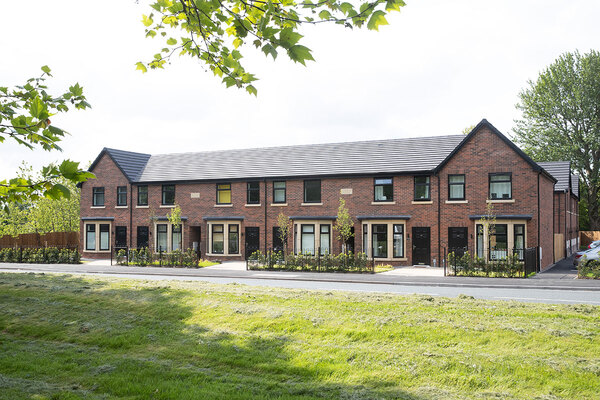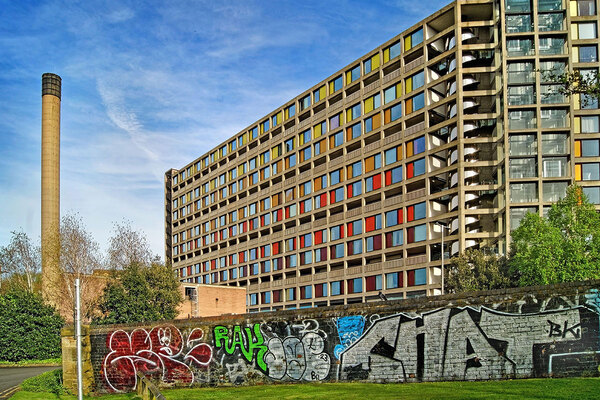Build-to-rent: can the sector help solve the housing crisis?
Paul Staley, director at Wise Living – a provider of privately rented family homes – tells us why build-to-rent is a vital piece in solving the housing crisis puzzle
In association with:
![]()
This government seems obsessed with homeownership. As a build-to-rent operator, what are your thoughts on that?
Owning your own home is great until you want to sell it and move on. Then it can be a nightmare.
I’m not saying buying a home is the wrong thing to do, but younger people now, especially those just starting their careers, are a little bit nervous about tying themselves in to a property too early in what might be the wrong location. That can be counterproductive.
Plus, this past year of working from home and more flexibly now we’re returning to the workplace has had an influence on where people choose to live in relation to their work location.
The housing market is changing and people are now less fixed in terms of where they work. Young people starting a job and staying with the same company all their life is just not something that happens any more.
There’s a lot more flexibility in the employment market – and having a rental property gives you the flexibility to move much quicker than you would have previously if you owned a place.
Do you think the government sees the build-to-rent sector as part of the jigsaw to help tackle the housing crisis?
I think the government runs scared of it a little bit. Private rental providers get stuck in the middle and we get forgotten about.
They [the government] get lobbied by house builders who like to build open market because that’s where they make the most margin. But look at the stamp duty holiday and Help to Buy scheme. All that has done is put house prices up. How is that supposed to help people get on to the housing ladder?
And the affordable housing sector is also clearly quite powerful in terms of lobbying the government for help and support.
It could be said that build-to-rent is the forgotten part of the housing sector. Yet we are looking after people on average incomes in average areas, just looking to live in an average house, and that doesn’t really win votes.
Generally, the rental sector has a bad reputation. The traditional landlord is seen as an absentee landlord with upwards of four properties, and local letting agents are relatively poor. So the stock is probably relatively poorly managed and maintained.
The government is trying to legislate around the sector to make it a little bit more professional, and put some standards in there, which is all good, and we’re in favour of that. But we sometimes get tarred with the same brush.
Everybody in the build-to-rent sector is in it for the long term. This is not just a short-term fix. We’re not going in there to make a quick buck. These are 20-year, 30-year, 40-year schemes. I think there’s a lot of good we can do as a sector.
What would you like to see from central government on build-to-rent?
I’d like them to really clearly define build-to-rent as a sector that they want to give some real attention to – and not just legislate against bad landlords, but to help encourage good landlords and institutional landlords to get into the sector and build proper, well-managed schemes.
Maybe it should be made a requirement that the planning departments of local authorities consider build-to-rent as part of the proposition when developing new homes.
When local authorities are looking at their housing mix, they should consider all options. For example, if on a scheme you’re going to do 100 affordable homes and 100 open market homes, should you not be doing 50 build-to-rent?
Leading Wise Living’s work in the private rental sector since 2017, Paul Staley has worked on a number of major projects during his build-to-rent career.
Working closely with clients to deliver high-quality rental homes, he has helped secure more than £1bn of institutional investment in build-to-rent schemes across the UK.
How do you think build-to-rent options can make a difference to the housing crisis?
We can build fast – we aim to deliver 2,000 homes each year. Our model is all about deploying capital as quickly as we can. We can also help with modern methods of construction and Wise Living is in conversations with a few manufacturers.
We know from day one what units we want and that they can be delivered, then we rent them out.
There are also advantages in us managing a whole development, rather than having lots of different landlords on a development, all with a different view.
For example, if we want to put some electric car points in for our tenants or have shared car spaces at one of our properties, we can help with that change and make it happen quickly.
It means we are not just creating a good place for people to live in but also helping with some of the social and environmental issues in communities.
Do you think local authorities understand the build-to-rent sector?
They do, but sometimes you have to work hard to explain it. You have to get in there and speak to the individuals involved.
There’s very little knowledge generally. Build-to-rent is still a very small sector in the UK so the challenge is: how do we get heard and how do we get seen?
I can’t help Generation Rent to get a mortgage. However I can help the market need for more homes by providing more homes to rent. If we don’t, then people are even worse served. We’re not changing the market, we’re just delivering a solution into the market.
In numbers
2,000
Housing target per year for Wise Living
How do you see the build-to-rent sector evolving over the medium to long term?
I think you’ll see more brands being created. So in the same way everybody knows Barratt the house builder, I think we will see a couple of large branded build-to-rent providers emerge. I think that’s where the market will go in 10 years’ time when it gets a bit larger.
For Wise Living, at the moment, our desire is less about size and more about quality. We want to make sure we get it right and build quality, long-lasting homes.
The majority of those who rent now live in a property owned by a traditional landlord, but I think a lot of those landlords will get squeezed out of the market and the shift will be to institutional build-to-rent properties.
It’s going to take time for this cultural shift but I imagine in 10 years’ time more people will be renting in an institution-owned property than they will in a private property.
If we can get a little bit more of a helping hand or a little bit more support from the government and local authorities, I think there’s a lot of good we can do as a sector.
Related stories













